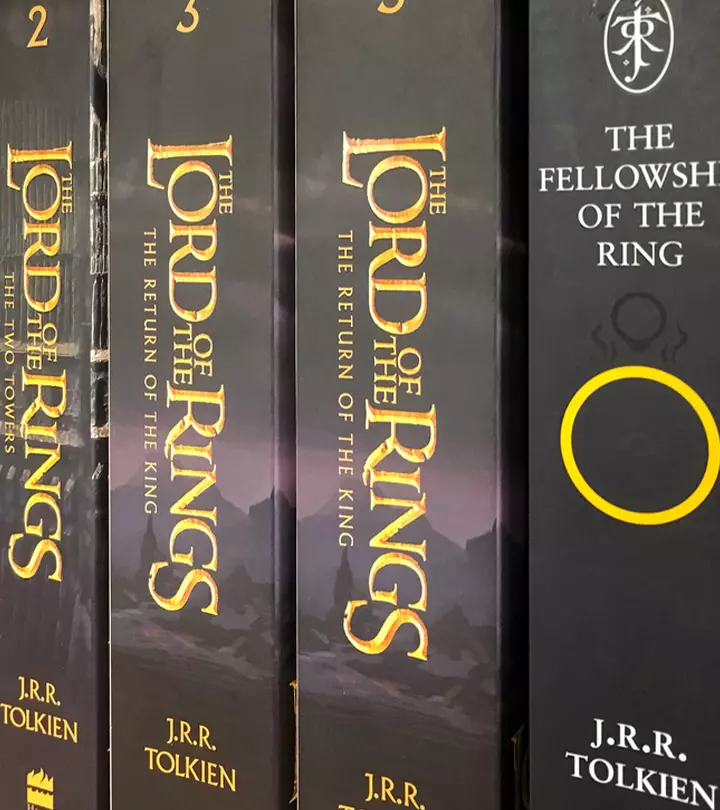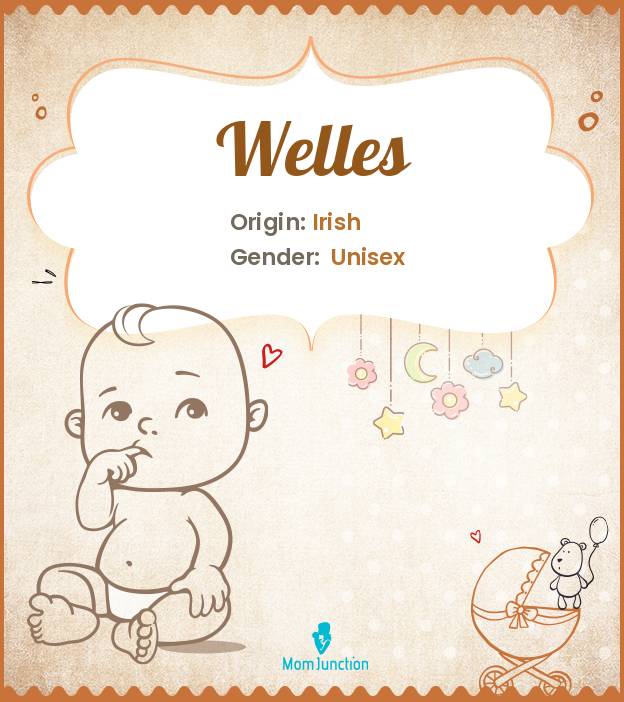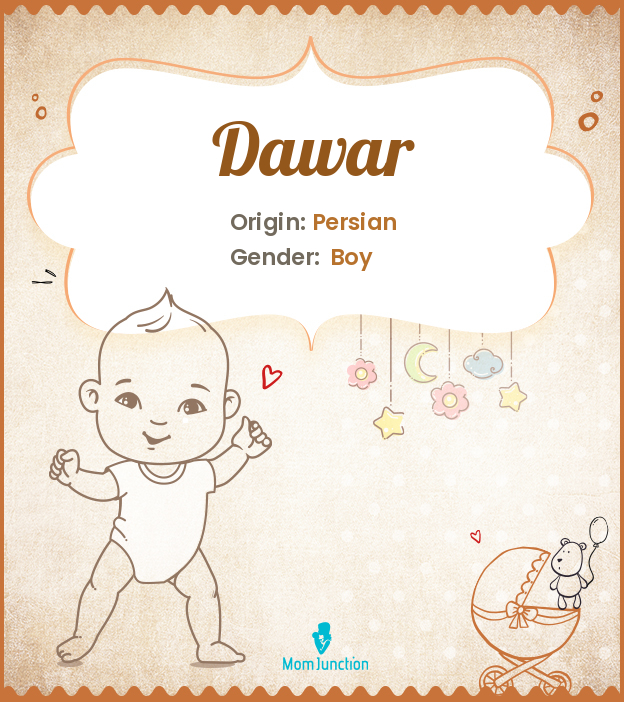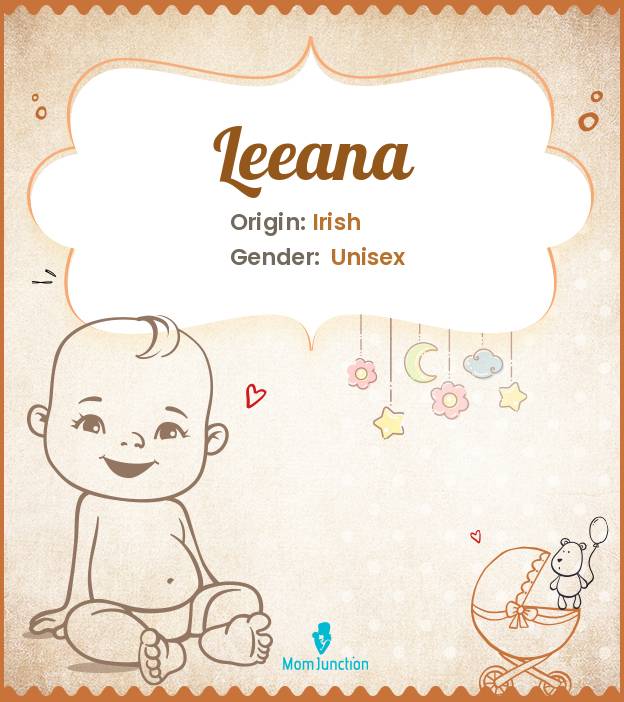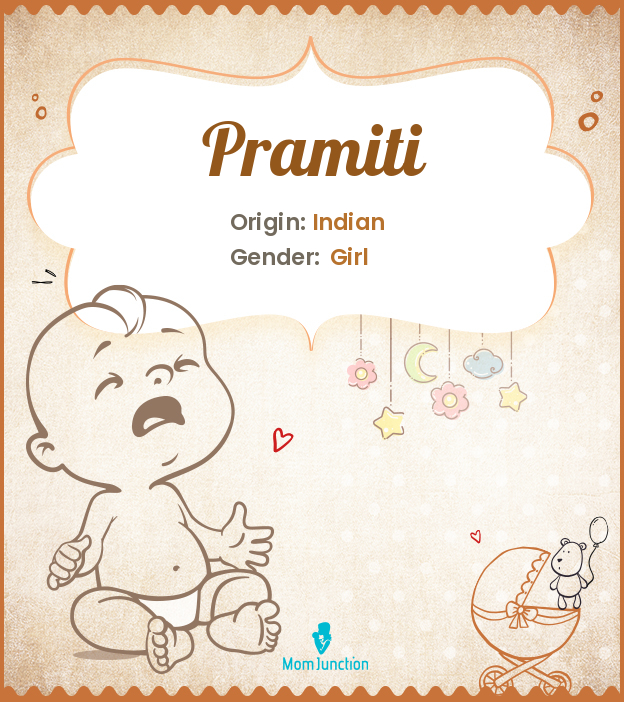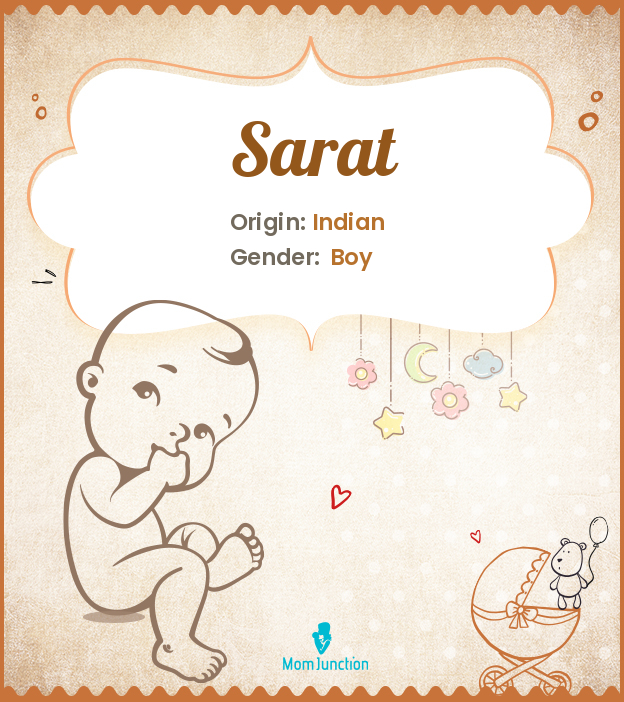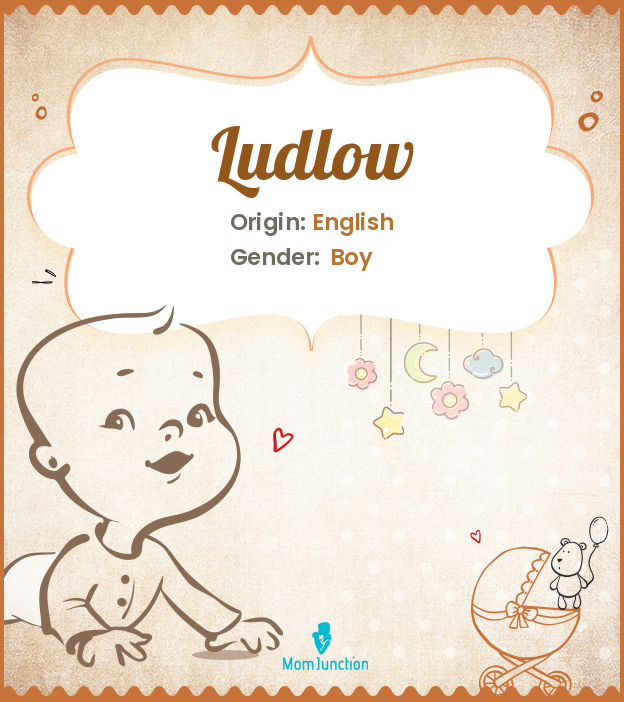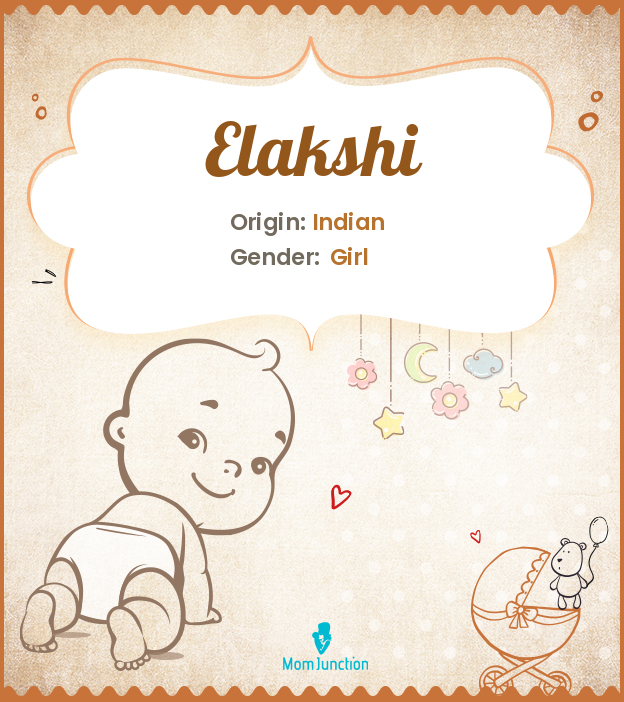
Image: ShutterStock
Scandinavia is a Northern Europe region that comprises the three kingdoms of Denmark, Norway, and Sweden. Like the strong historical, linguistic, and cultural ties these regions share, Scandinavian surnames also share a lot in common. If you are looking for Scandinavian last names or surnames for your baby, you are at the right place.

Historically, Scandinavians used a patronymic naming system. The nobles were the first to take last names, followed by the artisans, merchants, and clergies. Last names were used with primary patronyms with a suffix. These patronymic suffixes include “-datter,” “-dorrit,” “-dotter,” “-sen,” “-sson,” “-son,” “-zon,” “-fen,” “-ler,” and “-zen.” For example, Abrahamsen means “son of Abraham,” and Eva Niklasdatter means “Eva, the daughter of Nikla” (1).
In this post, we have combined several common Scandinavian last names or surnames with their meanings and origins. So read on and take your pick!
Key Pointers
- Scandinavian last names are often composed of a primary patronym and a suffix.
- Some Scandinavian surnames have toponymic origins, while some are anglicized forms of older names.
- Some short and easy-to-remember Scandinavian last names are Borg, Dahl, Kron, Lind, and Oscar.
Scandinavian last names borrow from Nordic and Viking cultures. These surnames are not just patronyms; they are toponyms with connections to nature and inspired by the Scandinavian landscape and geography, comprising mountains, forests, hills, fjords, and rivers. Some last names also derive from occupations, warrior culture, and Norse mythology. Learn more about the origins and meanings of these surnames in the list below.
1. Aaberg
It is a name taken from Scandinavian elements, ‘aa’ meaning ‘river’ and ‘berg’ meaning ‘mountain or hill.’ The name is believed to be of Swedish origin and is also spelled as Aberg.
2. Aland
This surname has a toponymic origin and refers to the Aland Islands in the south of Finland within the Gulf of Bothnia.
3. Alfson
It is an anglicized form of Alfsson, and refers to ‘son of Alf.’ Alf is a derivative of Old Norse ‘alfr’ or ‘elf’ which, in the Norse legend, was the name of a king.
4. Axel
It is a derivative of Old Norse ‘Asketill’ with elements ‘oss’ or ‘ass’ meaning ‘god’ and ‘ketill’ meaning ‘kettle’ or a ‘sacrificial cauldron.’ The other variants of the name are Axcell, Axell, and Aksell. It is also a shortened name for patronymic names Axelson or Axelsson.
5. Backe
It is a variation of the name ‘Bakke’ that has Dutch and Norwegian origins. It comes from the Middle Dutch word ‘bac’ meaning a ‘bucket’ or a ‘beaker.’ It likely refers to someone who was in the occupation of making buckets or other vessels. Another origin is from the name of numerous farmsteads in Norway. The name, in this case, comes from the Old Norse name ‘Bakki’ meaning ‘bank’ or ‘hillside.’
6. Beck
It comes from the Swedish word ‘back’ meaning a brook or a stream. It is a toponymic name for a person who resided by a stream or a riverbank. Other variants of the surname include Back, Bekk, and Baek.
7. Bell
This surname has both German and English origins. In German, it is a toponymic name for someone hailing from Bell of Rhineland, or from Belle of Westphalia. Derived from Middle English, the occupational name refers to a bell maker or bell ringer.
8. Bengtsson
It is of Swedish origin with a patronymic meaning ‘son of Bengt.’ The name Bengt is the Swedish version of the name ‘Benedict, which comes from the Late Latin name ‘Benedictus’ meaning the ‘blessed one.’ Other variants of the name are Bankson, Bankston, Bengtzon, Benson, or Benktsson.
9. Berg

It is the Swedish word for ‘mountain’ and thus a toponymic name for someone who lived near or on a hill. The word likely comes from the Old Norse element ‘bjarg’ meaning ‘hill’ or ‘mountain.’
10. Bielke
This surname is a variant form of ‘Bjelke,’ which means a ‘beam’ in Norwegian. The name Bjelke dates back to the 1500s and was the name of a noble family.
11. Bjerke
It has an ornamental origin and has topographic meaning as the name comes from the Old Norse word ‘birki’ meaning ‘birch.’
12. Blom
It has its origin in Scandinavian, German, and Dutch languages. The name comes from a word that refers to a ‘bloom’ or ‘flower.’
13. Bonde
It comes from the Old Norse word ‘bondi,’ meaning a ‘farmer.’ The name is an occupational one and refers to someone who works as a farmer or was employed in the agriculture sector.
14. Borg
It comes from the Old Norse word ‘borg’ meaning ‘fortification.’ It is a toponymic name for someone who lived around a fort or a hill that worked as a fortification.
15. Brand
This is a patronymic form of the German personal name ‘Brando’ meaning ‘sword.’ The name probably came from Old Norse and spread across Scotland, Scandinavia, England, North Germany, and the Netherlands.
16. Breiner
It comes from the Middle High German word ‘brie’ meaning ‘porridge.’ It is likely an occupational name.
17. Bunderson
It is a variant form of Danish ‘Bundeson’ or Swedish ‘Bondesson’. The name is a patronymic form of ‘Bonde,’ which comes from the Old Norse word ‘Bondi’ meaning a farmer.
18. Carlson
This has a patronymic meaning, ‘son of Carl.’ The name ‘Carl’ comes from the name ‘Charles,’ which comes from the Germanic word ‘Karl’ meaning a ‘man.’
 Did you know?
Did you know?19. Christensen
It is a Danish and Norwegian patronymic surname originated from the personal name, Christen meaning ‘son of Christen.’ The name ‘Christen’ comes from the word ‘Christian.’ The other variants of the name are Christenson, Kristenson, and Kristensen.
20. Dahl
It is a toponymic name given to a person living in a valley or among several valleys. It is a derivative of the Old Norse word ‘dalr’ meaning ‘valley.’
21. Dolph
It is a variant of the German name ‘Adolf.’ The name ‘Adolf’ is composed of Old High German elements ‘adal’ meaning ‘noble’ and ‘wulf’ meaning ‘wolf.’
22. Edman
This surname is of Swedish origin and is made from elements ‘ed’ meaning ‘isthmus’ and ‘man’ meaning ‘man.’ It is likely a toponymic name referring to someone who lived on an isthmus, a narrow strip of land that connects two large pieces of land.
23. Ellingboe
This surname has its origin in the Old Norse word ‘Erlingr,’ meaning ‘son of an Earl (nobleman).’ Another origin could be the Frisian words ‘Elle’ and ‘boe’ meaning ‘abode’ or ‘dwelling.’
24. Emanuelson
It means ‘son of Emanuel.’ The name Emanuel is a derivative of Hebrew personal name ‘Immanuel’ meaning ‘god is with us.’
25. Engberg
It is a combination of the Swedish words ‘ang’ meaning ‘meadow’ and ‘berg’ meaning ‘mountain.’ It is a toponymic name.
26. Engman
It also has Swedish origin, and is a combination of the Swedish words ‘ang’ meaning ‘meadow’ and ‘man’ for ‘man.’ It is a toponymic name for someone who lived in or around a meadow.
27. Ericson
It is a patronymic name that means ‘son of Eric.’ The name ‘Eric’ is derived from the Old Norse personal name ‘Eirikr’ containing the elements ‘ei’ meaning ‘always’ or ‘ever’ and ‘rikr’ meaning ‘power’ or ‘ruler.’ Other variants of the name are Ericksen, Ericsson, Erichsen and Eriksson.
28. Erling
This Scandinavian surname means ‘descendant of jarl.’ The word ‘jarl’ is an Old Norse word meaning ‘nobleman,’ ‘chieftain,’ or ‘earl.’
29. Eskildsen
It is a variation of the name ‘Asketill’ that contains the Old Norse elements ‘oss’ or ‘ass’ meaning ‘god’ and ‘ketill’ meaning ‘kettle’ or a ‘sacrificial caldron.’
30. Estenson
It is also a patronymic form of the Old Norse name ‘Eysteinn’ containing the elements ‘ey’ meaning ‘happiness,’ ‘luck,’ or ‘git’ and ‘steinn’ meaning ‘stone.’
31. Fagerberg
An ornamental name combined of two Scandinavian elements namely ‘fager’ meaning ‘beautiful’ and ‘berg’ meaning ‘hill’ or ‘mountain.’
32. Falk

It is an ornamental name derived from the Scandinavian word ‘Falk’ meaning a ‘falcon’ or a ‘bird of prey.’
33. Falkenberg
It has both toponymic and ornamental meanings. The name is a combination of the Scandinavian elements, namely ‘falk’ meaning ‘falcon’ and ‘berg’ meaning ‘hill’ or ‘mountain.’
34. Fredrickson
It is a patronymic name that means ‘son of Fredrick.’ The name ‘Fredrick’ means ‘peaceful rules.’ The name is composed of the Old German elements ‘frid’ meaning ‘peace’ and ‘ric’ meaning ‘ruler.’ The other spelling variants of Fredrickson are the Swedish, Fredriksson, and Norwegian, Fredriksen.
35. Friberg
It has an ornamental derivation made of Scandinavian elements ‘fri’ meaning ‘free’ and ‘berg’ meaning ‘mountain’ or ‘hill.’ The name is also a toponymic one for any of the several places called Frieberg in Germany.
36. Frisk
It is the Swedish word for ‘healthy and fresh.’ The word ‘frisk’ is a derivative of the Middle Low German word ‘vrisch’ meaning ‘fresh and young.’
37. Frydenlund
It is a toponymic name and refers to a place called Frydenlund in Norway. It is also an ornamental name made from the Scandinavian elements ‘fryd’ meaning ‘delight’ and ‘lund’ meaning ‘grove.’
 Trivia
Trivia38. Gulbrandsen
It is a patronymic name meaning ‘son of Gudbrandr.’ The name Gudbrandr is composed of the Old Norse elements ‘gud’ meaning ‘god’ and ‘brandr’ meaning ‘sword.’ The other variants of this surname are Gulbrandson and Gulbranson.
39. Gustafsson
It means ‘son of Gustav.’ The name Gustav comes from Old Norse and means ‘staff of Geats’ where ‘Geats’ refer to an ancient tribe.
40. Hall
This has German, English, Swedish, Norwegian and Danish origins with a simple meaning ‘hall.’ This name was given to those who worked or lived in a hall, which is the house of a medieval noble.
41. Halvorson
It means ‘son of Halvor.’ The name ‘Halvor’ means ‘firm’ and ‘prudent’. The name is composed of the Old Norse elements ‘hallr’ meaning ‘rock’ and ‘vardr’ meaning ‘defender.’
42. Haraldson
It means ‘son of Harald.’ ‘Harald’ comes from the name ‘Harold’ that is an occupational name from Old German meaning a ‘commander.’
43. Hartvigsen
It is a patronymic form of the Germanic personal name ‘Hartvig’ that has the Old German elements ‘hard’ meaning ‘strong’ and ‘wig’ meaning ‘combat’ or ‘battle.’
44. Helvig
The name is composed of the Old German elements ‘hel’ meaning ‘luck’ and ‘wig’ meaning ‘war.’
45. Hjorth
It is a variant of the name ‘Hjort’ that is the Swedish and Danish word for ‘deer.’ The name is likely an ornamental one or an occupational one or could have begun as a nickname.
46. Holmen
It is a variant of the name ‘Holm’ that in Old Norse means an ‘island’ or refers to a ‘settler from an island.’ The name is a toponymic one.
47. Horn
This has its roots in German, Norwegian, Danish and English languages, and taken from the Germanic element ‘horn’ meaning a ‘horn.’ It is an occupational name for a person carving objects from a horn, or the one who plays a horn, or someone who lived in a horn-shaped piece of land.
48. Junge
This Scandinavian surname is derived from Old Danish personal name ‘Odhinkar’. This name is composed of the Scandinavian elements ‘Odinn’ meaning ‘god’ and ‘karr’ meaning ‘strong .’
49. Knudtson
This last name has a variant spelling ‘Knudsen,’ which means ‘son of Knud.’ The personal name ‘Knud’ is taken from the Old Norse word ‘knutr’ meaning ‘knot.’
50. Kolbeck
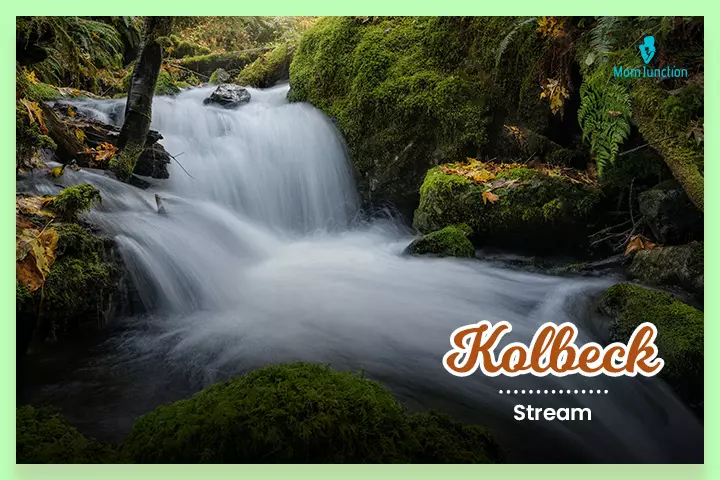
It is a combination of the Old Norse word ‘kaldr’ meaning ‘cold’ and ‘bekkr’ meaning ‘stream.’ The name Kolbeck is either an ornamental one or a toponymic one referring to someone who lived near a cold stream.
51. Krog
It is a toponymic name for someone from any of the several places called Krog in Scandinavia. The name comes from Scandinavian and means ‘bend’ or ‘corner.’
52. Kron
The name has its origin in German ‘Krone’ or Swedish ‘Krona’ meaning ‘crown.’ It was used as a byname for a person working in a royal household.
53. Leif
It is derived from the Old Norse word ‘Leifr’ which means ‘descendant,’ ‘heir,’ or ‘beloved.’
54. Lind
This name has Scandinavian, Dutch, English and Jewish origins, and is a toponymic name for a person who lived by a linden tree.
55. Lindquist
It is a name composed of the Swedish words ‘lind’ meaning ‘linden tree’ and ‘quist’ meaning ‘branch’ or ‘twig.’ The name could be an ornamental one or could be toponymic.
56. Lorenzen
It means ‘son of Lorens.’ The name ‘Lorens’ traces its origins to the Old Roman name ‘Laurentius’ meaning ‘from Laurentum.’ Laurentum was a city in Ancient Italy and its name likely comes from the Latin word ‘laurus’ meaning ‘laurel.’
 Trivia
Trivia57. Lund
It is a toponymic name for those lived by a grove. The name comes from the Old Norse word ‘lundr’ meaning ‘grove.’
58. Mathieson
This surname is a patronymic one and means ‘son of Matthew.’ The name Matthew comes from the Hebrew name ‘Mattityahu’ meaning ‘gift from God.’
59. Ness
It is derived from the Old Norse word ‘Nes’ meaning a ‘promontory’ or ‘headland’, which is the name for a piece of land or rock that projects off the coast towards the sea. The name is a toponymic one referring to someone who lived on a headland.
60. Nord
It is the Swedish word for ‘north’ and is a toponymic name referring to someone who lived in the northern part of the village, or who migrated from the north.
61. Nyberg
It is a combination of the Swedish words ‘ny’ meaning ‘new’ and ‘berg’ meaning ‘mountain.’
62. Nybo
It is a combination of the Swedish words ‘ny’ meaning ‘new’ and ‘bo’ meaning ‘house’ or a ‘dwelling.’ This surname is a toponymic one denoting any of the many farmsteads with this name.
63. Nyborg
The name is composed of the Swedish words ‘ny’ meaning ‘new’ and ‘borg’ meaning ‘castle.’ It is a toponymic name for someone living near a new castle or fort.
64. Nygaard
It is a toponymic name consisting of the Swedish words ‘ny’ meaning ‘new’ and ‘gard’ meaning ‘courtyard’ or ‘farmstead.’
65. Nyhus
This Scandinavian name is a combination of the Norwegian words ‘ny’ meaning ‘new and ‘hus’ meaning ‘house.’ The name is likely a toponymic one.
66. Nyland
It is composed of the Norwegian words ‘ny’ meaning ‘new’ and ‘land’ meaning ‘land’ or ‘farmstead.’ It has a toponymic name referring to someone from a newly reclaimed land or new farmstead. Other variants of the name are Nilant, Nieland, and Nijland.
67. Nylund
This surname has a Swedish origin and is a combination of the words ‘ny’ meaning ‘new’ and ‘lund’ meaning ‘grove.’ It is a toponymic name referring to someone from a ‘new grove.’
68. Ohlson
It has its roots in the country of Sweden, and means ‘son of Olaf.’ The name Olaf comes from the Old Norse word ‘Aleifr,’ which means ‘ancestor’s heir’ or ‘ancestor’s descendant.’
69. Olander
It is a toponymic name for someone living in the islands of Oland (eastern Sweden) or Aland (western Finland).
70. Oman
It is a composite of the Swedish words ‘O’ meaning ‘island’ and ‘man’ meaning ‘man.’ The surname means ‘island man’ and is a toponymic one.
71. Oscar
Oscar is a combination of the Gaelic elements ‘os’ meaning ‘deer’ and ‘cara’ meaning ‘friend.’ Another source of the name could be the Old Norse word ‘Asger’ meaning ‘god’s spear.’
72. Peerson
It is a patronymic name meaning ‘son of Par’ or ‘son of Per.’ ‘Per’ and ‘Par’ are Scandinavian versions of the name Peter. The name Peter comes from the Old Greek name ‘petros’ meaning ‘stone’ or ‘rock.’
73. Pihl
The ornamental name is derived from the Scandinavian word ‘pil’ meaning ‘arrow.’ The name is likely an occupational one referring to someone who makes arrows or is an archer.
74. Riis
It is a Scandinavian nickname taken from ‘ris’ meaning ‘scrub’ or ‘twigs.’ The name likely comes from the Old Norse word ‘hris,’ which means ‘brushwood.’
75. Ring
This surname has its origin in the Middle High German word ‘Rinc’ meaning circle. It is regarded as the surname for the maker of rings as jewelry or as in a harness.
76. Risberg
It is a combination of the two Old Norse words ‘hris’ meaning ‘brushwood’ and ‘berg’ meaning ‘mountain.’ It is a toponymic name for a person whose ancestral line is from a farmstead or a place with brushwood hill.
77. Rosenberg
It translates to ‘rose mountain’ in Swedish with the words ‘rosen’ meaning ‘rose’ and ‘berg’ meaning ‘mountain.’ It is an ornamental name or could also be a toponymic name.
78. Salverson
This is a patronymic name meaning ‘son of Salve.’ The name ‘Salve’ comes from the Old Norse words ‘salr’ meaning ‘hall’ or ‘house’ and ‘ve’ meaning ‘hero’ or ‘giant.’
79. Sandberg
It is a combination of the Swedish words ‘sand’ meaning ‘sand’ and ‘berg’ meaning ‘mountain.’ This toponymic name thus means ‘sand mountain.’ Another variant of the name is Zandberg.’
80. Sigmond
It is a variant of ‘Sigmund’ that comes from the Germanic elements ‘sigu’ meaning ‘victory’ and ‘mund’ meaning ‘protection’ or ‘protector.’
81. Skau
This surname is a derivation of the Old Norse word ‘skogr’ meaning ‘forest’ or ‘wood.’ It is a toponymic name for someone who lived around a forest or farmland.
82. Soelberg
It is a combination of the Scandinavian words ‘sol’ meaning ‘sun’ and ‘berg’ meaning ‘mountain.’ The name means ‘sun mountain’ and is a toponymic name.
83. Steenberg
This has Scandinavian and German origins and is a variant of the name Stenberg. The toponymic name is formed with the combination of the Middle Low German words ‘sten’ meaning ‘stone’ and ‘berg’ meaning ‘hill’ or ‘mountain.’
84. Steensen
The patronymic name means ‘son of Steen.’ The name ‘Steen’ is derived from the Old Norse word ‘steinn’ meaning ‘stone.’
85. Stendahl
It is an ornamental name with Swedish elements ‘sten’ meaning ‘stone’ and ‘dahl’ meaning ‘valley.’
86. Strand

It is derived from the Old Norse word ‘strond’ meaning ‘seashore’ or ‘beach.’ The toponymic name is given to those living near the sea.
87. Thomason
It means ‘son of Thomas.’ The name ‘Thomas’ comes from the Aramaic name ‘Taoma’ meaning ‘twin.’
88. Thor
It comes from the Old Norse word ‘Thor’ meaning ‘thunder.’ The name refers to the God of Thunder in Norse mythology.
89. Thorp
This is a variant of the word ‘Torp’ that comes from Old Norse and means a ‘farm.’ The name ‘Thorp’ is a toponymic one.
90. Thostenson
It is a variant of ‘Thorstenson’ and a patronymic form of the personal name ‘Thortsrein’ or ‘Thurston.’ The names are a combination of the Old Norse words ‘Thor’ meaning the ‘God of Thunder’ and ‘steinn’ meaning ‘stone.’ The name thus refers to ‘Thor’s altar’ or ‘Thor’s hammer.’
91. Toft
This is a toponymic name referring to someone from any of the places or farmsteads called Toft. The name ‘Toft’ comes from the Old Norse word ‘topt’ meaning a ‘curtilage’ or ‘homestead.’
92. Tranum
It is a combination of the Scandinavian word ‘trane,’ meaning ‘crane,’ and the second element ‘um,’ from the Old Norse word ‘heimr,’ meaning ‘farmstead’ or ‘home.’
93. Truelson
Truelson or Trulson is a patronymic derivative of Old Norse ‘torgils’ taken from ‘Thor’ the Norse ‘God of Thunder’ and ‘gils’ denoting a weapon.
94. Trygg
This surname is derived from the Old Norse nickname ‘Tryggr’ meaning ‘faithful’ or ‘trustworthy.’
95. Vagle
It a variant of the name ‘Wagle.’ This toponymic name comes from the Old Norse word ‘vagl’ meaning a ‘roost’ or ‘perch’ that refers to a ridge between two lakes.
96. Vang

It is the Swedish variant of the name ‘Wang.’ This name comes from the Old Norse word ‘vangr’ meaning ‘grassy land’ or ‘meadow.’ This name is an ornamental or toponymic one.
97. Westberg
It is a derivative of Scandinavian elements ‘vast’ meaning ‘west’ and ‘berg’ meaning ‘hill.’
This is a toponymic name referring to someone from the western mountains or hills.
98. Westergaard
It is a variant of another Scandinavian surname ‘Westergard.’ It is a toponymic name consisting of the Scandinavian elements ‘wester,’ meaning ‘western,’ and ‘gard,’ meaning ‘farm.’
99. Winter
This surname is either derived from the Old English word winter or Old High German word ‘wintar’ meaning ‘winter.’ This was used as a byname for those having a cold personality.
100. Wuopio
This toponymic name comes from Swedish and likely refers to a person who lives in a narrow bay with a steep shore.
Discover More Names
When you have to choose a name for your baby, a few hundreds of names may not be just enough. Keep digging our mine of baby names until you find that one precious gem.
Frequently Asked Questions
1. Do Scandinavians have last names?
In all of Scandinavia, the patronymic naming system is followed. It implies that a person’s family name was created by taking their father’s first name and adding a suffix signifying their gender.
2. When did Scandinavians start using surnames?
The use of hereditary surnames gradually increased in the cities in the 16th century. People began using fixed surnames toward the end of the nineteenth century (2).
3. What is a Scandinavian-American surname?
A Scandinavian-American surname is typically a last name of Nordic origin, commonly found among individuals or families with Scandinavian ancestry who have immigrated to or are descendants of immigrants to the United States. Some common names include Anderson, Johnson, Olsen, or Svensson.
4. Do Scandinavians still take their father’s name?
In Scandinavian countries, it is common for individuals to take their father’s surname as their last name. This practice is prevalent in countries like Sweden, Norway, and Denmark, where the patrilineal naming tradition is followed, and children typically inherit their father’s surname. However, it’s worth noting that naming customs can vary, and there may be exceptions or variations in specific cases or regions.
5. Are there any famous people with Scandinavian last names?
Renowned individuals with Scandinavian last names include Swedish actress Alicia Vikander, Norwegian author Jo Nesbø, Danish tennis player Caroline Wozniacki, Swedish environmental activist Greta Thunberg, and Norwegian playwright Henrik Ibsen.
6. Can Scandinavian last names be traced back to Viking times?
Yes, Scandinavian last names can often be traced back to Viking times. Many surnames in the Scandinavian region have roots in Old Norse, the language spoken by the Vikings. Slight similarities can be found between Scandinavian last names and Viking surnames.
7. What are some differences between Scandinavian and other European last names?
Scandinavian last names often feature patronymic elements and specific suffixes, reflecting ancestral lineage or geographical origin, while other European last names may have different linguistic roots and variations in naming traditions. Additionally, Scandinavian surnames may exhibit unique sound patterns associated with Nordic languages.
8. Are there any trends in Scandinavian last names today?
Recent trends in Scandinavian last names include a revival of patronymics, the popularity of nature and place names, the adoption of international surnames, and the practice of hyphenating or combining names.
9. Do Scandinavian last names have any regional variations?
Scandinavian last names may vary regionally due to distinct naming traditions, preferences, and historical factors in each country.
10. How did Scandinavian last names evolve?
Scandinavian last names evolved through various processes, including the transition from patronymics to hereditary surnames and influences from cultural, historical, and linguistic changes, resulting in the diverse range of surnames seen today.
Now that your bundle of joy is in your arms, you may be excited about naming them. However, you may feel overwhelmed by the multitude of naming options available. If you are looking for a surname inspired by rich culture and civilization, explore these Scandinavian last names or surnames provided in this list. These names have been specially chosen because they are thoughtful and unique. Scandinavian last names allow you to peek into the cultural history of Scandinavia, which is heavily influenced by Old Norse. Also, you may be fascinated to know that although these names have been used for several centuries, they retain the meanings they had hundreds of years ago. So, get experimental and try these unique surnames.
Surnames or last names help us understand one’s family history and lineage. In the following infographic, we have included a list of Scandinavian surnames and their meanings. Giving this list a read will help you learn about the cultures and history of the Scandinavians.
Some thing wrong with infographic shortcode. please verify shortcode syntax

Image: Dall·E/MomJunction Design Team
References
- Jewish names and naming traditions in Denmark.
https://www.jewishgen.org/scandinavia/names.htm - Norway Personal Names
https://www.familysearch.org/en/wiki/Norway_Personal_Names
Community Experiences
Join the conversation and become a part of our nurturing community! Share your stories, experiences, and insights to connect with fellow parents.
Read full bio of Shikha Thakur
Read full bio of Srija Chanda Burman
Read full bio of N Pravenchandra Singh







